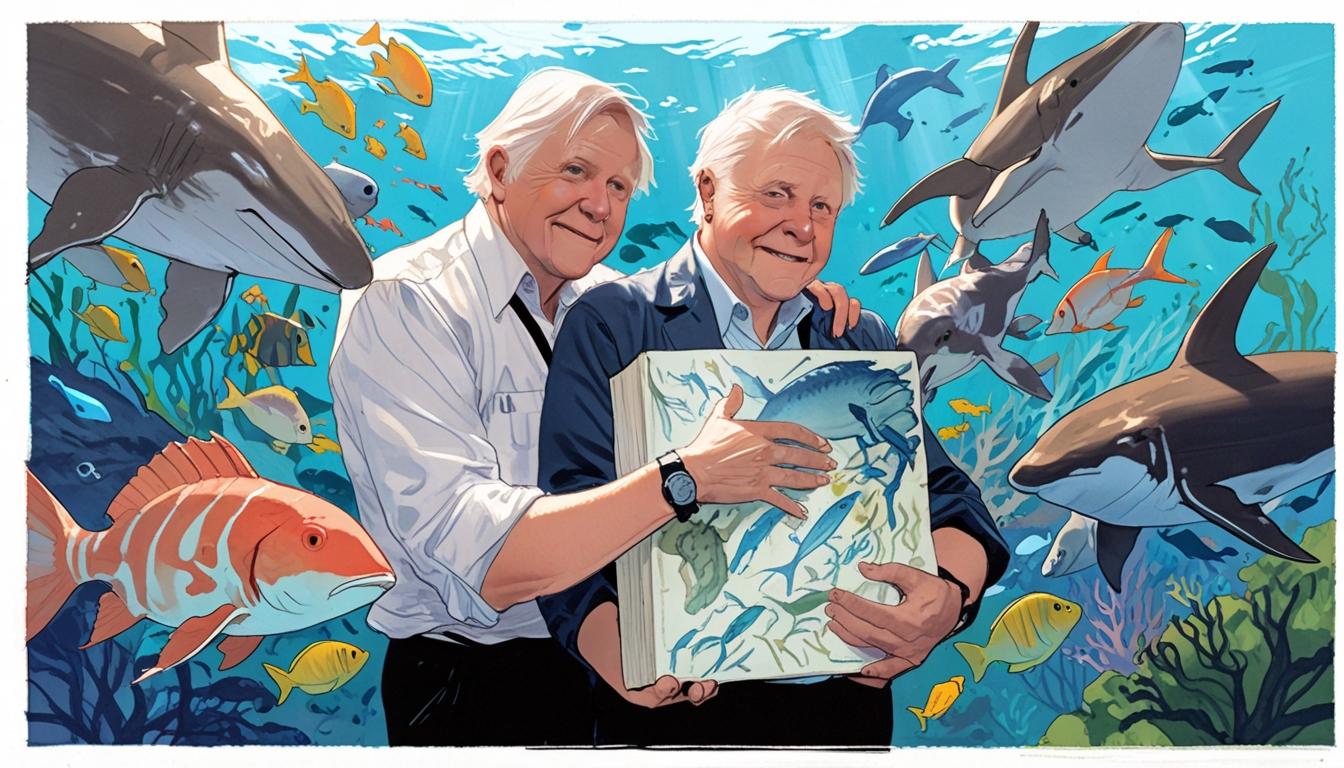In celebration of David Attenborough’s 99th birthday, a remarkable tribute has been published, featuring reflections from an impressive roster of admirers, including Barack Obama, Billie Eilish, and Morgan Freeman. This star-studded homage shines a light on Attenborough’s enduring legacy, which has profoundly influenced millions worldwide to cherish the natural world. For those fortunate enough to encounter him in person, asking about rugby might be more fitting than discussing his illustrious career, highlighting his charming humility amidst monumental achievements.
Attenborough’s lifelong dedication to environmental advocacy is encapsulated in his latest collaborative work, "Ocean: Earth's Last Wilderness," released on his birthday. This book, co-authored with Colin Butfield, explores eight unique marine habitats, interweaving personal narratives with scientific insights. It arrives at a critical juncture for our oceans—according to recent commentary from Attenborough, the next century may witness either an alarming mass extinction of marine life or a potential recovery, contingent on public understanding and action regarding ocean conservation.
Adding to this narrative of hope and advocacy, Attenborough's new documentary, which premiered shortly before his birthday, provides an eye-opening examination of the devastating impacts of human activity on marine environments. While focusing on pressing issues such as industrial fishing and coral bleaching, the film accentuates the resilience of the oceans. “The ocean can recover faster than we had ever imagined,” Attenborough asserts, reinforcing the urgent necessity of ocean preservation as integral to the health of our planet.
In a different but equally significant conversation surrounding youth and technology, headteachers in St Albans have banded together to urge parents to postpone giving smartphones to children until they reach at least 14 years of age. This collective decision stems from growing concerns about the detrimental effects of smartphones on children’s mental health and social interactions. Notably, research indicates that 91% of children in the UK possess a smartphone by age 11, with many acquiring one even earlier. The initiative has garnered widespread support, with over 34,000 parents endorsing a pact to foster a 'smartphone-free childhood.'
This movement toward protecting childhood experiences reflects broader societal anxieties about the digital landscape's impact on young minds. Many families are beginning to reassess the balance between embracing technology and preserving essential formative experiences, often leading to collaborative actions akin to what we see in St Albans. As parenting dynamics shift in the digital age, such initiatives may inspire similar conversations across the country and beyond.
In the realm of celebrity culture and its intersection with political discourse, the ongoing saga involving Blake Lively and Candace Owens exemplifies how celebrity feuds can spiral into broader societal debates. The unfolding events have drawn significant attention, particularly from right-wing figures, demonstrating a troubling convergence of celebrity influence and political opinion manipulation. This phenomenon underscores the hypocrisy inherent in celebrity culture, where public sentiment can be manufactured and weaponised for political ends, challenging our understanding of authenticity in public discourse.
As Attenborough continues to inspire new generations through his advocacy for the environment, and as communities strive to create healthier spaces for children amidst the growing tide of technology, these narratives interweave, reflecting larger cultural shifts. The collective efforts to both honour a beloved figure like Attenborough and protect the innocence of childhood reveal a society grappling with its values, aspirations, and responsibilities towards the future.
Reference Map
- Paragraphs 1, 2
- Paragraph 3
- Paragraph 4
- Paragraph 5
- Paragraph 6
Source: Noah Wire Services
